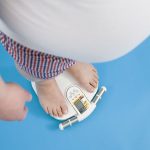
The rise in colon cases among younger adults that’s been seen in the United States is also occurring in wealthier nations worldwide, new research shows. In the decade leading up to 2014, the number of cases of colon cancer among people under 50 increased by 3% a year in Denmark, New Zealand, Australia and Canada, and by 1% per year in Britain. The increase was most pronounced among those aged 20 to 29, noted a team led by Dr. Marzieh Araghi, from International Agency for Research on Cancer in Lyon, France. Among twenty-somethings, colon cancer cases rose by 18% a year in Denmark and 11% in Norway, according to the study published May 16 in The Lancet Gastroenterology & Hematology. “Although the incidence of colorectal cancer in adults younger than 50 years remains much lower compared with that in older age groups, our findings are of concern and highlight the need for action to counteract the rising burden of the disease in younger people,” Araghi said in a journal news release. The increase in cases among the young runs counter to declines in colon cancer among people over 50, the researchers pointed out. For example, between 2004 and 2014 cases of colon cancer fell each year among people over 50 — by 2% in Australia and Canada, 3% in New Zealand, and 1% annually in… read on >



























-300x200.jpg)










